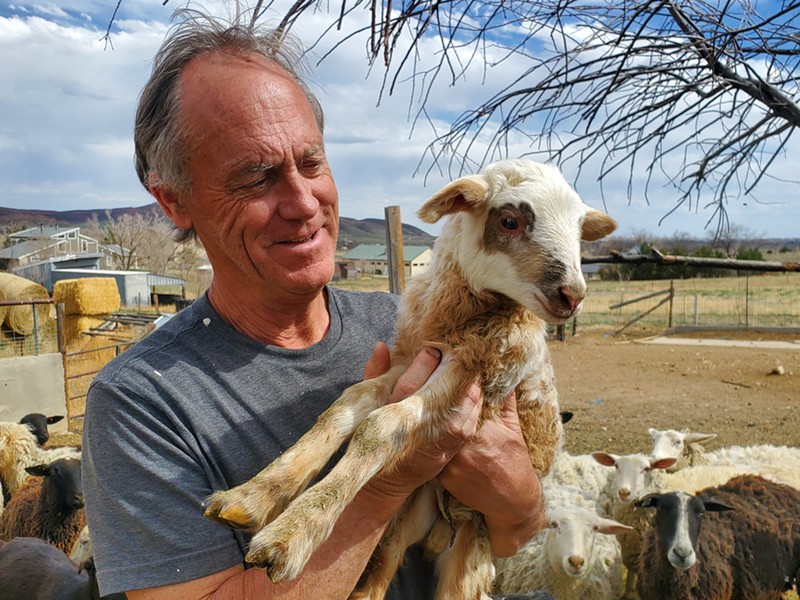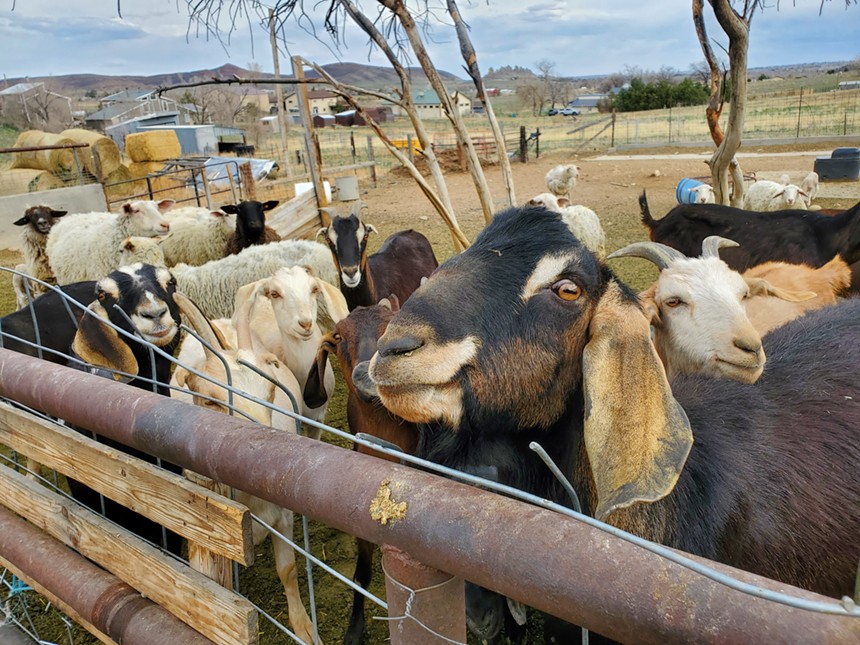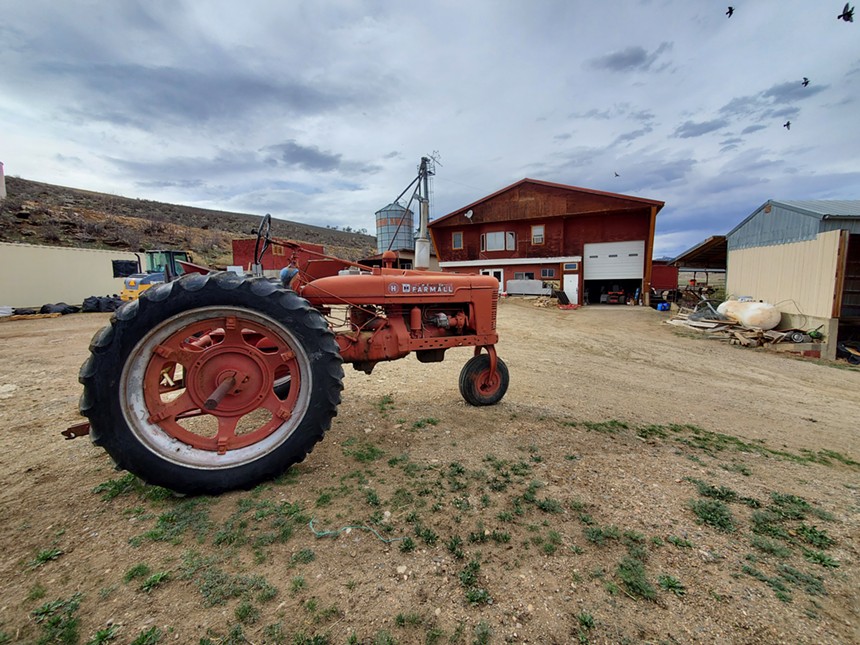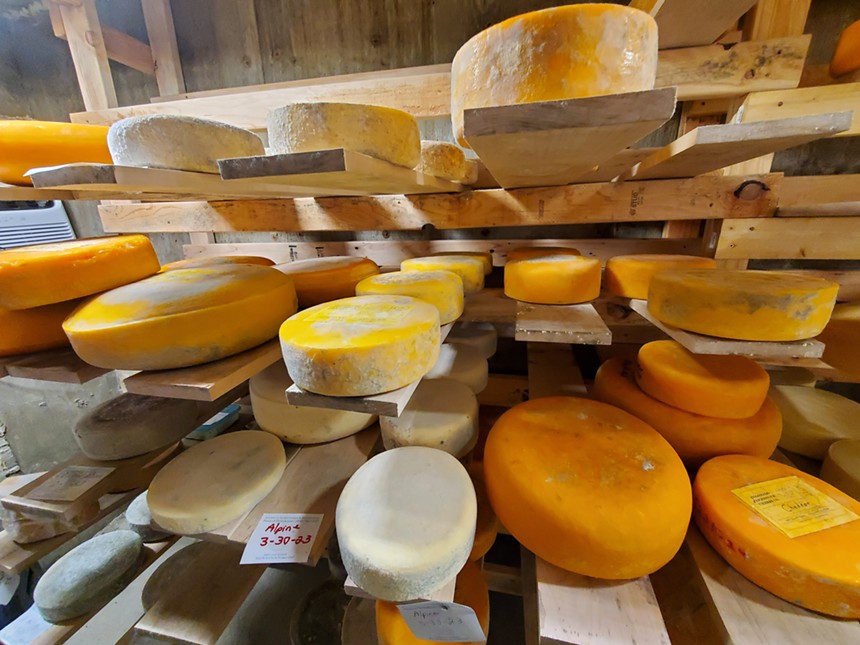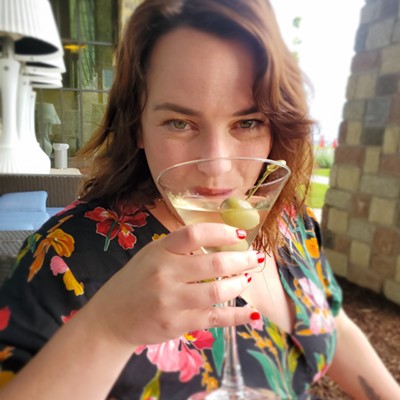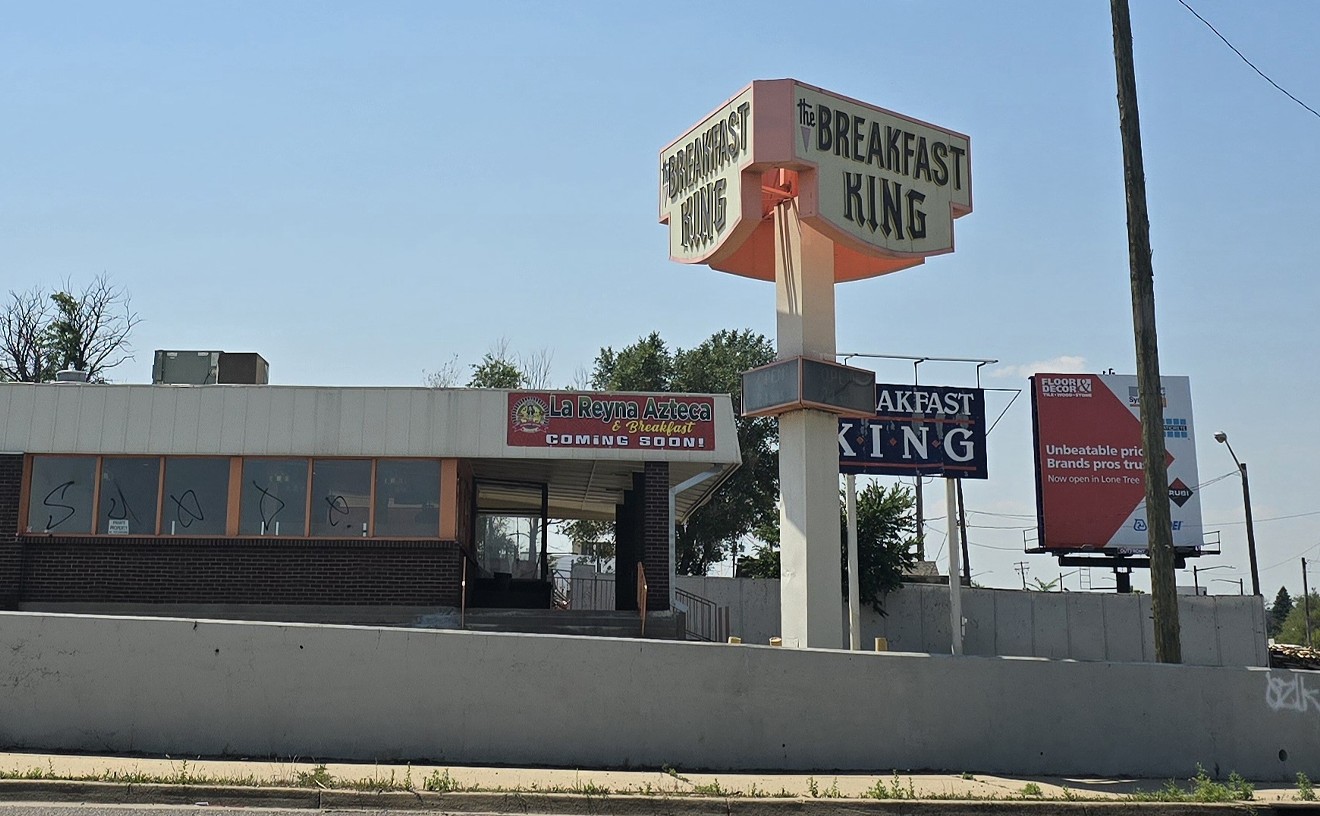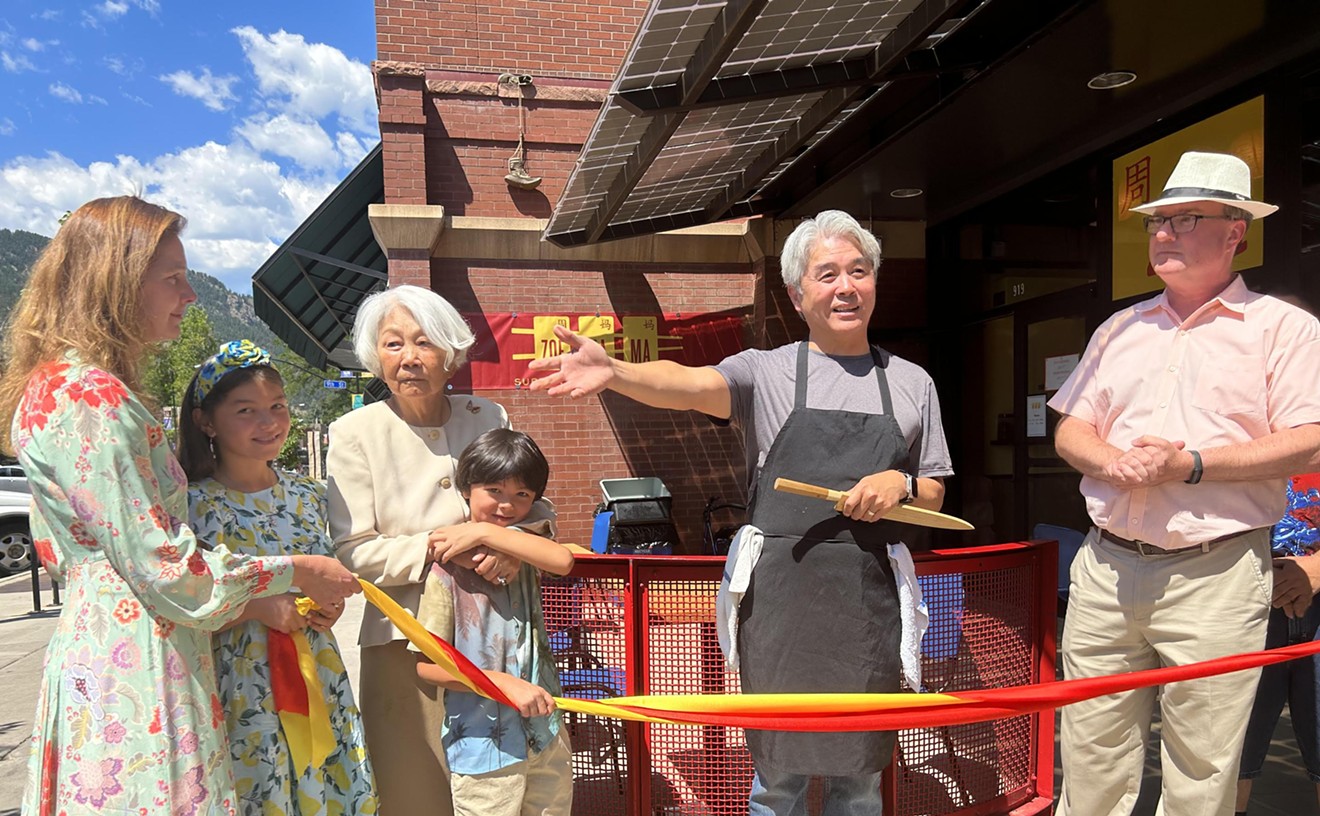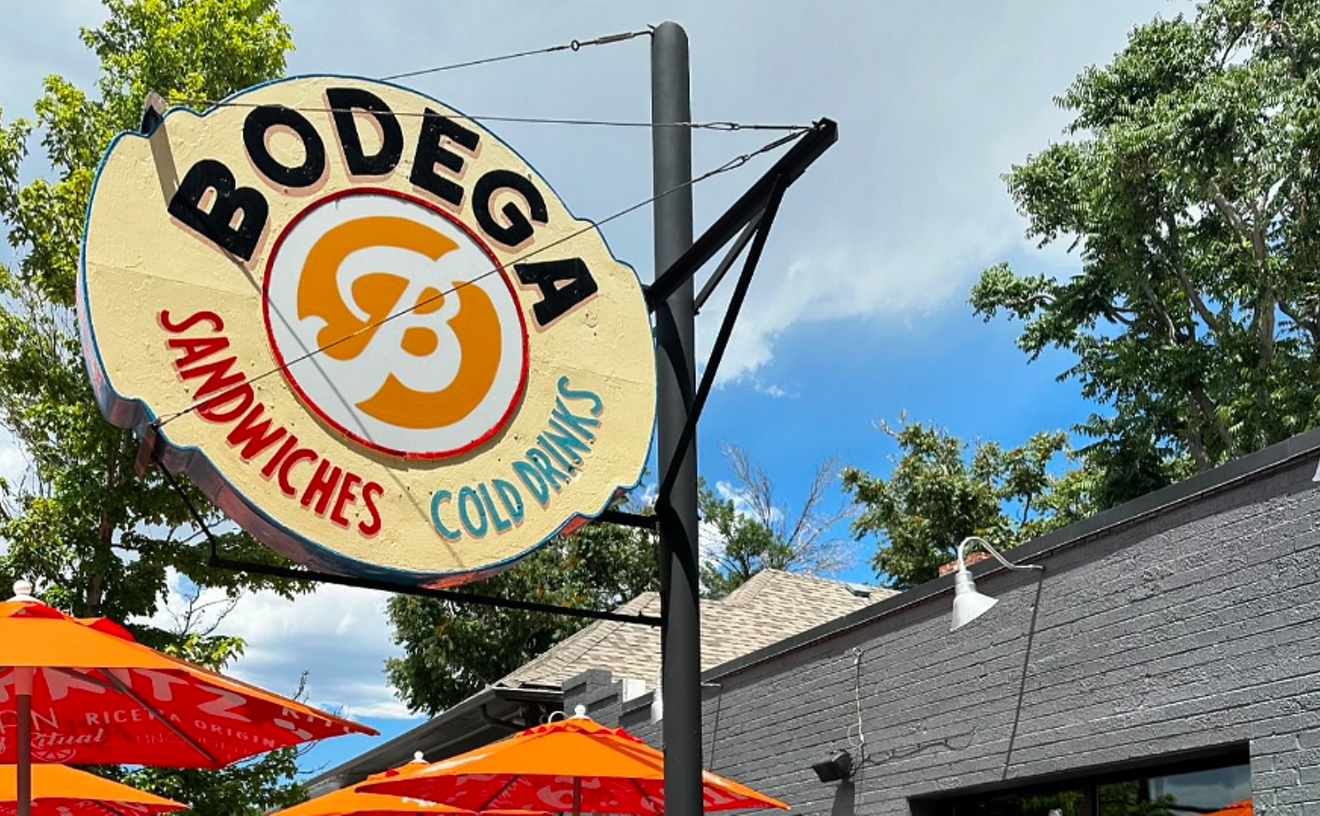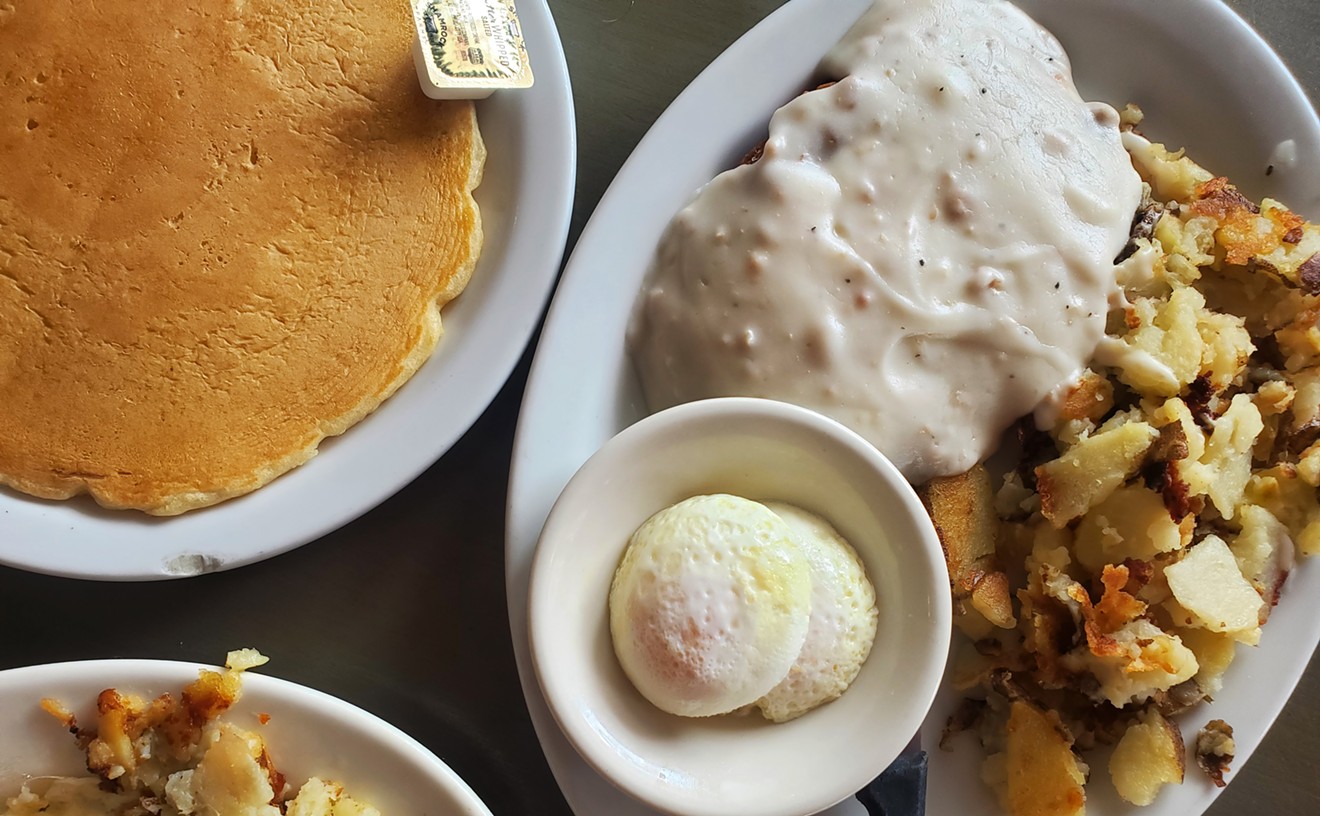At a farm just west of Loveland, where the foothills start to rise from the plains, his growing brood of cows, goats and sheep are having babies almost daily this spring. "That's Jumpin' Jack Flash," he says of one particularly friendly goat that has free rein of the grounds. "He was the first goat that was born under my watch."
Spring is a busy time for dairy farmers, and particularly for Veldhuizen, who is ramping up to officially launch Colorado Farmhouse Cheese Company, which will soon be the only sheep dairy in the state.
While cheese-making is a new endeavor for Veldhuizen, he's no stranger to the local culinary scene. His family moved to Loveland in the early ’60s, when he was an infant, and he was a chef and restaurant owner in the area for over three decades.
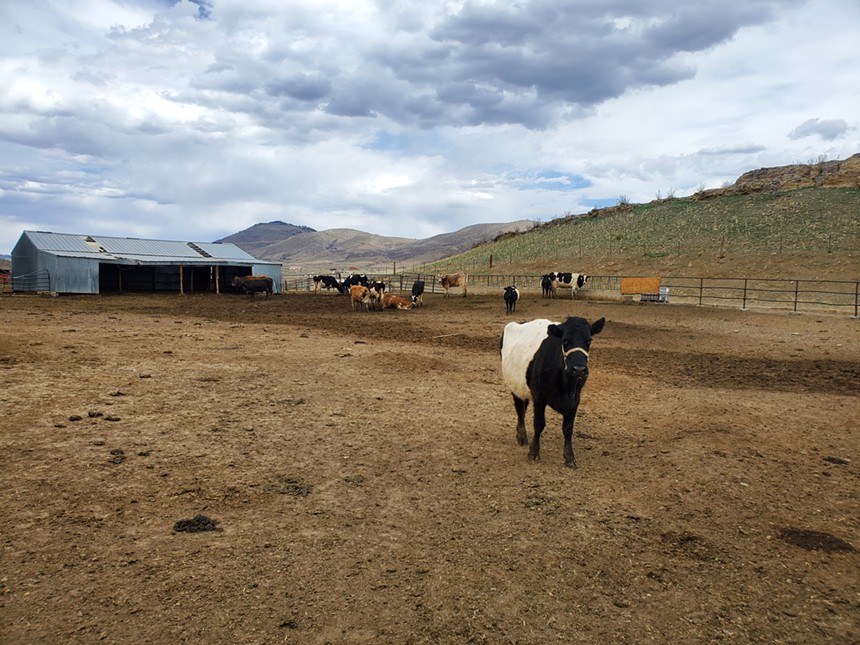
Faith is one of Tim Veldhuizen's eleven Dutch Belted cows. There are only about 350 of this type of cow in the United States.
Molly Martin
"As a chef, I was always looking for different, better-quality, better-tasting foods. So I started raising rare-breed pigs about six years ago," he says of his first foray into farming.
Around that time, his wife got sick, and they decided it was time for a major lifestyle change. "Running restaurants, the stress was just crazy. And I had up to four at a time," Veldhuizen recalls.
After selling his eateries, he continued raising pigs and traveling the world. "That's kind of my joy," he says. But he also found another passion.
"I have a cousin in Texas who makes cheese, and he's been my inspiration to do it myself," Veldhuizen says. "It's just really enjoyable, because it encompasses all the things I look for. I'm trying to make good-tasting food that's nutritious and done the right way, taking care of the animals, the land, and trying to do it in an Old World kind of style. I'm not going to conquer the world, and I'm not going to feed the world. But I want to help feed people in the area that are looking for the products that I can make."
By season's end, he expects to have around eighty new goats and thirty to forty lambs born at the farm where he's leased space for the past two years. (The pigs live at another farm nearby.) He'd also like to grow his cattle to around fifty head. His cheese-making license was approved last November, so his new business is poised to start regular production soon.
"Big dairies want large quantities of bland milk, because that's what we as consumers want. We want really grassy, strong-tasting milk, because that makes better cheese," Veldhuizen notes as he stands among twenty or so baby goats that are kept in a separate barn. "They think they're getting fed," he jokes as they playfully nip at his clothes.
Across the driveway from the pen where the adult goats and sheep are housed is a small production room where the actual cheese-making happens, using very low-tech equipment. Currently, Veldhuizen is producing a Gruyère-like Rocky Mountain Alpine Cheese as well as Ticino, an Italian semi-hard cheese, Gouda and cheddar. The latter three are covered in wax, then all of the cheeses are aged in a cave lined with shelves that he dug out and built himself, just below the production room.
With the sheep's milk, he plans to make Manchego, another Gouda and, further in the future, a blue cheese and some fresh milk cheeses.
The first step of the cheese-making process is to heat the milk. Veldhuizen's vat holds up to 100 gallons of milk; this piece of equipment came from Fruition Farms Creamery in Larkspur, which produced sheep's-milk cheese before chef Alex Seidel sold it in 2021.
Why are there no other sheep dairies in the state? "In the United States, the government doesn't want to support small farmers. They want to support big industrial farms," Veldhuizen says. "That's where all the money and the attention and the expertise and all that knowledge goes.
"Sheep dairying is even more difficult, because they only provide milk for eight to nine months, and quantities are low," he continues, explaining that because of the mad-cow scare of the ’80s, the importation of animal products has been limited for the last forty years, leading to a limited genetics pool. "You need those animals coming in and genetic additions to keep improving your herd."
Cost is a factor, too, as sheep's-milk cheese is more expensive for the consumer. While he's able to sell cow's-milk cheese for $22 per pound and goat's-milk cheese for $26 per pound, sheep's-milk cheese will run closer to $30 per pound. "For a lot of people, that's just too expensive," Veldhuizen admits. But he also doesn't expect that to be a deterrent for Colorado Farmhouse Cheese, because he's producing in such relatively small amounts.
While he's hoping to continue to grow the business, he doesn't want to sacrifice quality — of life or cheese — to do so. "That's the point of this whole thing. I didn't want to be stressed, running four restaurants and having 150 employees," he says. "I want to slow down and enjoy my life."
But he might get back into the restaurant game in a different way. Veldhuizen is planning to open a farm store where he can sell his cheese and other goods at his other farm about fifteen minutes away, which is home to those rare breed pigs.
"We'll also convert one of the buildings into a farm-to-table restaurant. I think it's a thing that could fit really well. But I'm not going to run it," he says. "My restaurant days are over. I would like to have some input into the concept and whatnot, but my passion is cheese now."
Colorado Farmhouse Cheese is currently being distributed through Cheese Importers and is available at its shop, at 103 Main Street in Longmont. For more information, visit coloradofarmhousecheese.com.

